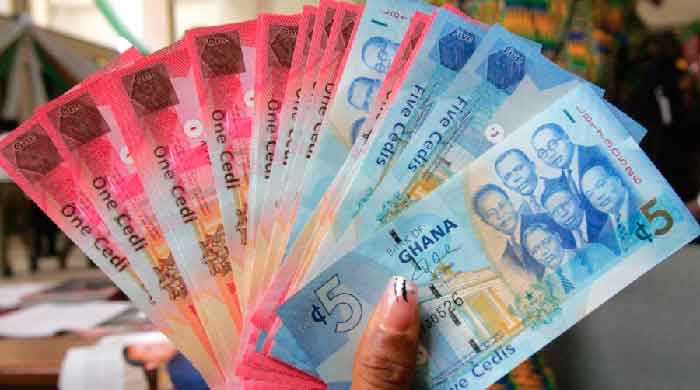The Ghanaian cedi, Ghana’s official currency, has found itself in the midst of a whirlwind, as it grapples with corporate demand and fluctuating external factors.
Despite the pressures stemming from firm corporate demand, the cedi has displayed a surprising degree of resilience, maintaining a certain level of stability against the US dollar while simultaneously facing challenges from other global currencies.
GCB Capital, a leading financial institution in Ghana, has been closely monitoring the cedi’s performance and has reported that the local currency is treading a stable path against the US dollar. This stability is evident on both the interbank and retail market segments, providing a sense of predictability for traders and businesses alike.
However, this stability does not come without its own set of challenges. The cedi closed last week 0.3% weaker against the US dollar. The primary reason for this weakening is the high level of corporate demand, which has placed significant pressure on the currency.
At the same time, foreign exchange supplies have been limited as Bureau de Change (BDC) operators scramble to secure funds to settle maturing Letters of Credit (LCs).
The situation Is somewhat different when we look at the cedi’s performance against the euro and the British pound. On the interbank market, the cedi showed a significant decline of 1.68% and 2.18% against the euro and the pound, respectively, during the same period.
This divergence in performance can be attributed to various external factors, including fluctuations in global exchange rates and economic conditions.
One of the key factors influencing the cedi’s performance is the annual cocoa loan syndication, specifically for the 2023/24 fiscal year, which is targeting an impressive US$800 million. The success of this syndication is crucial for the cedi’s stability and overall economic outlook.
As of now, the closure of this loan has been delayed, possibly due to unfavorable pricing. This delay underscores the thinning liquidity conditions in the foreign exchange market, further complicating the cedi’s journey.
GCB Capital analysts emphasize that the cedi’s performance in the remaining months of Q4 2024 is closely tied to several anticipated financial inflows. These include funds from the cocoa loan syndication, as well as disbursements expected from international financial institutions like the International Monetary Fund (IMF) and the World Bank, as part of the ongoing support program.
The Demand for Treasury Bills
On another front, the demand for Treasury bills (T-bills) remains strong, with yields hovering near their peak. During last week’s T-bill auction, total demand reached GHC2.86 billion, marking a 10.7% increase week-on-week.
The Treasury accepted 94% of the bids, surpassing the auction target by 25% and maturities due by 35%. This indicates that investors are still drawn to T-bills, seeking the relatively high yields they offer.
The 91-day T-bill cleared at a rate 15 basis points higher, reaching 29.97%, and is poised to hit the 30% mark at the next auction. The 182-day and 364-day T-bills also recorded higher clearing rates, with increases of 47 and 28 basis points, respectively, reaching 32.15% and 33.70%.
In the secondary fixed income market, activity slowed down with an aggregate turnover of GHC1.92 billion, marking a 43% decrease compared to the previous week. Bonds took up the lion’s share of market activity, accounting for 55% of the value traded, although this represented a 24.6% decrease week-on-week.
On the other hand, T-bill activity experienced a significant slowdown, recording a turnover of GHC0.872 billion, which was a 57% decrease.
One particular instrument that gained attention in the secondary market was the 30 November bond with a coupon rate of 8.95%. It was the most actively traded instrument, moving an aggregate volume of GHC687.9 million at an average price of nearly 50% discount.
Looking ahead, the upcoming T-bill auction, scheduled for Friday, 10 November 2023, is expected to target a gross issuance of GHC3.11 billion, a notable increase of 44.3% compared to the previous week. This surge in refinancing obligations may result in more pronounced increases in clearing yields at the auction, underscoring the strong investor appetite for government securities.
In the intervening time, the cedi’s journey continues to be characterized by a fine balance between corporate demand, external factors, and the appeal of government securities. While the cedi remains stable against the US dollar, it faces pressures from other major currencies.
The success of the annual cocoa loan syndication and the inflow of funds from international financial institutions will be key in determining the cedi’s trajectory in the coming months.
Furthermore, the T-bill market remains attractive to investors seeking higher yields, indicating a continued interest in government securities. These factors combined will shape the financial landscape of Ghana in the near future, making it a market worth watching closely.
READ ALSO: EU Commission President Underscores EU Enlargement




















